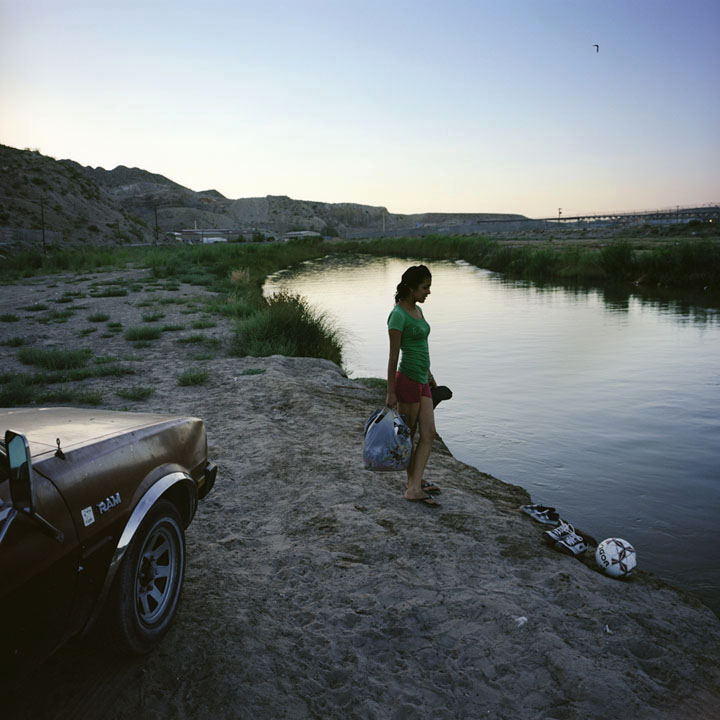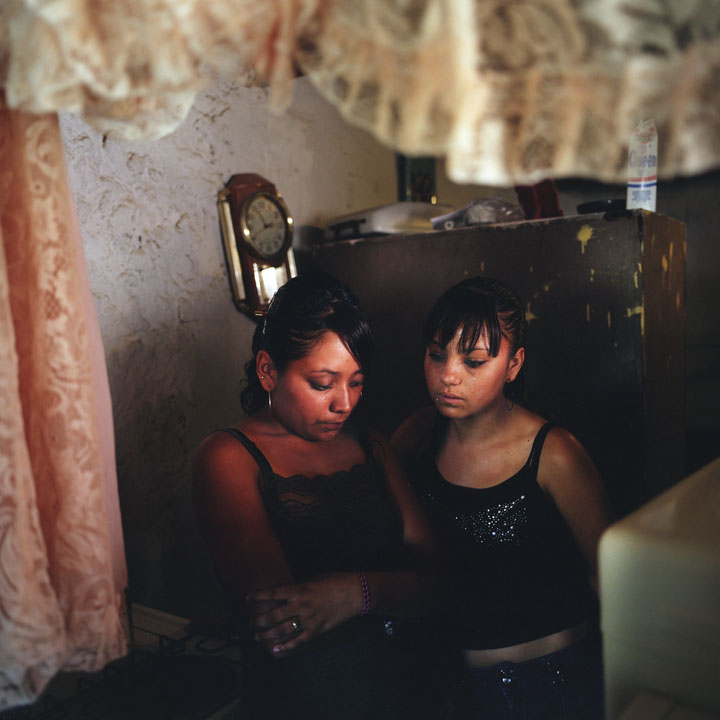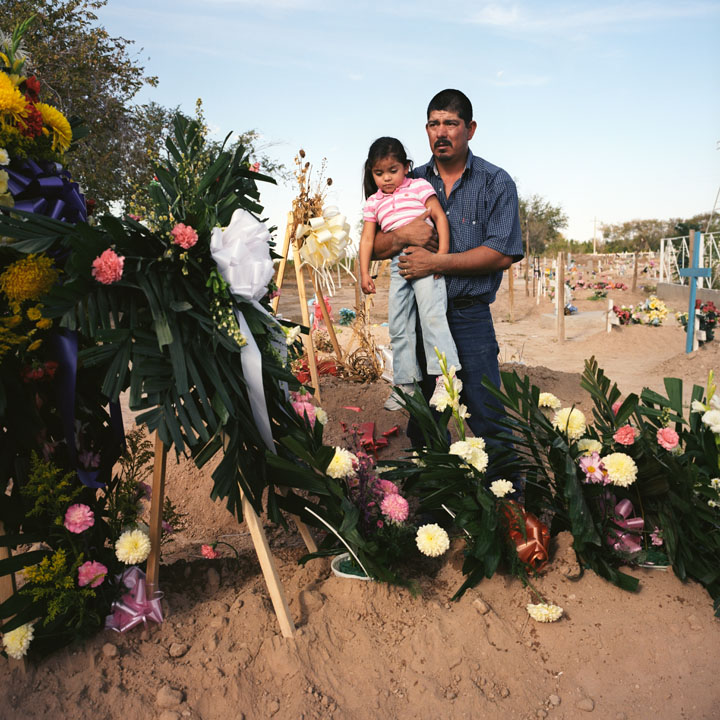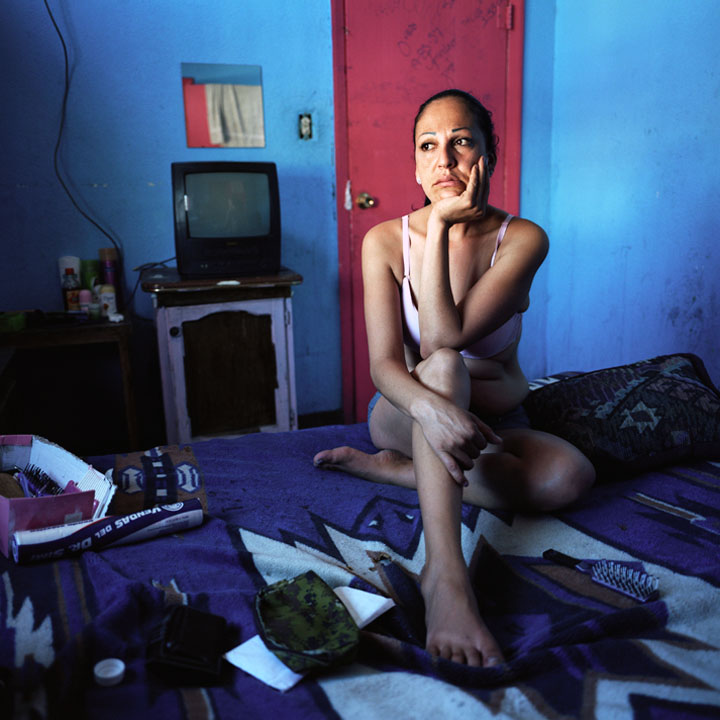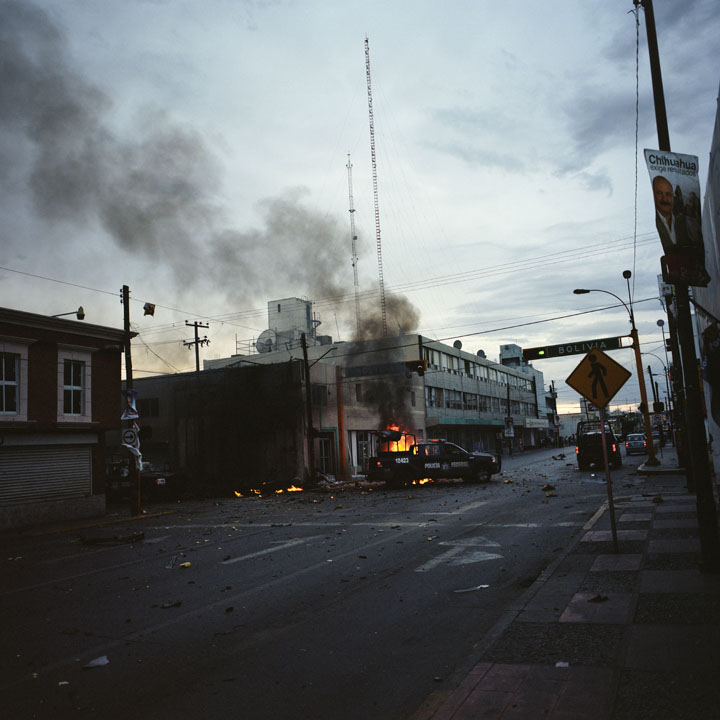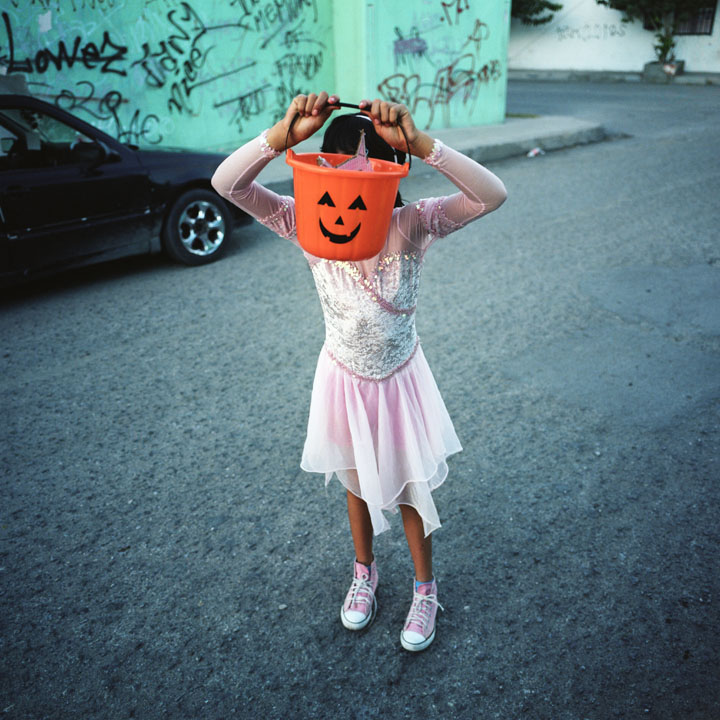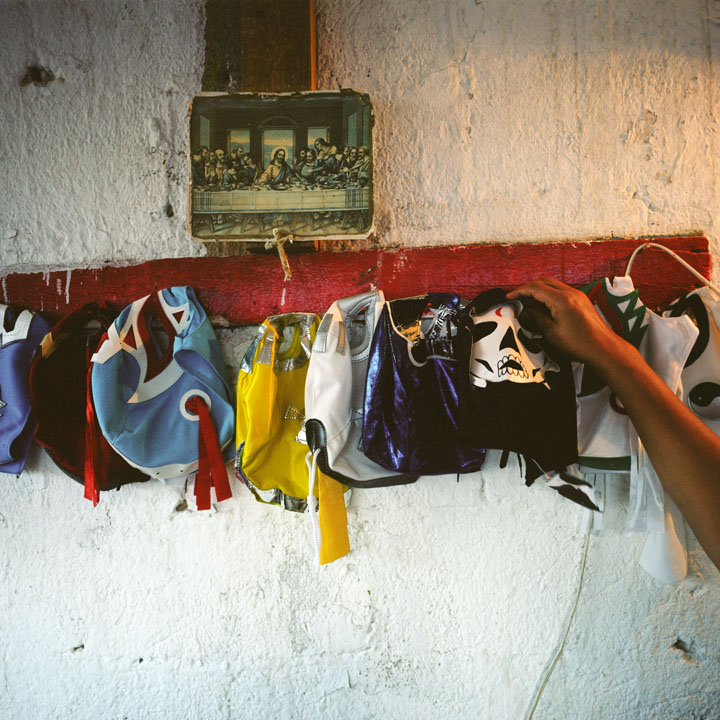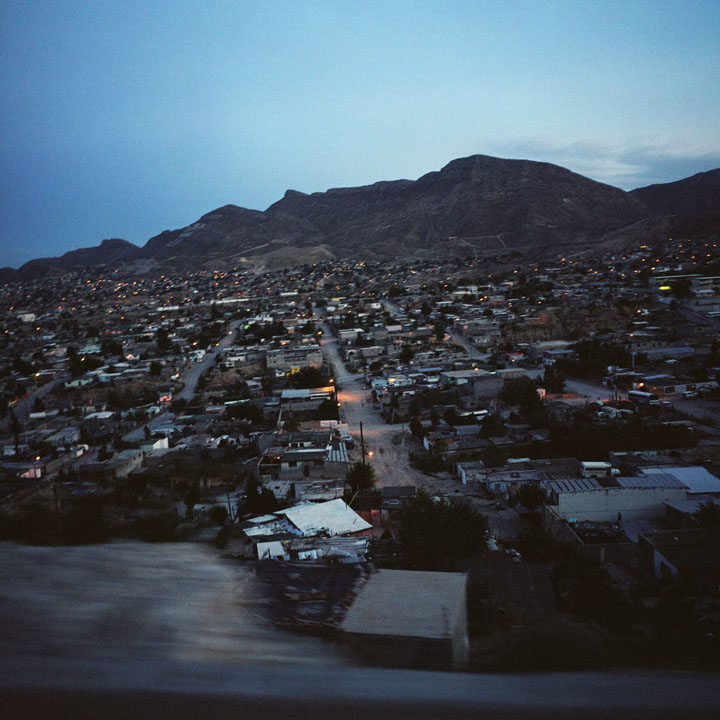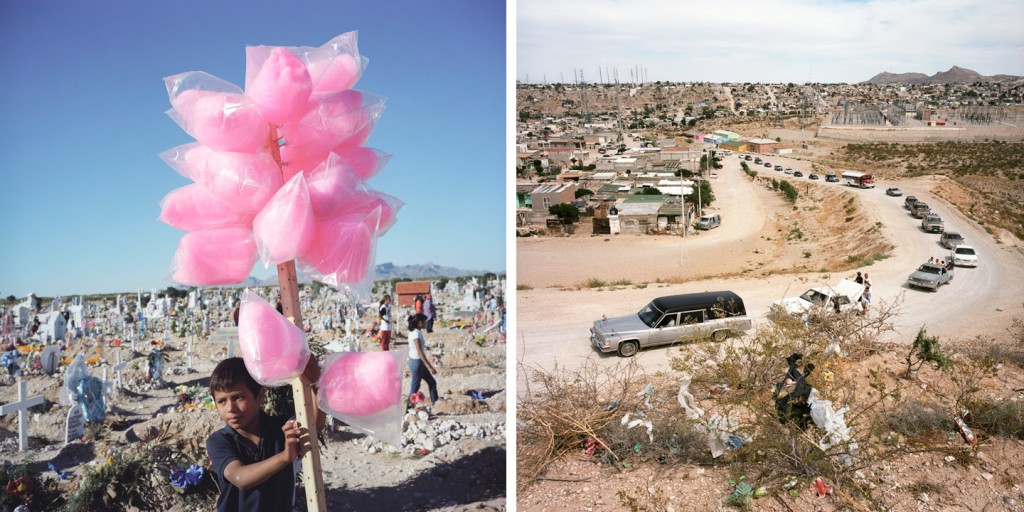2011 Critical Mass finalist Scott Dalton talks about his former incarnation as an AP wire photographer and his current life as a project-based documentary photographer.
Who are some of your mentors?
I’d say my first and only mentor was Dennis Darling. He was my professor at the University of Texas. Other than Dennis it’s just been colleagues, photographer friends, we’d talk to each other and look at work and discuss photography.
Why did you consider Dennis Darling a mentor?
Because he was my professor and a really good one. I think the work that he’s done and the work he was presenting to us at the time kind of piqued my interest in a particular direction. At that time, it was all black and white and a lot of portraits and travelling and photographing in interesting places. There were also certain photographers I looked at that really changed my focus so to speak. For me an early and really strong influence was Alex Webb.
Although he wasn’t a direct mentor, Alex Webb was definitely a…
He was the reason I started taking pictures. I was an engineering major and I saw his book “Under a Grudging Sun” that he did in Haiti and the moment I looked at that book, I said, “This is what I want to do.” Since then the photography that has influenced me and directions that I have pursued has continually evolved. One photographer leads to another leads and then another and you slowly absorb bits a pieces and eventually or hopefully go in your own direction, so it’s a combination of a lot of different stuff.
You said you were an engineering major before you picked up Alex Webb? So that book was like “screw engineering”…
Well, I was about ready to screw it anyway, but it was that book that influenced me to go towards photography. It had never really occurred to me before the idea of travelling around to these crazy places and making photographs, it seemed like a really good idea and a lot of fun. But now I’m not so sure it’s a good idea (laughs).
it was that book that influenced me to go towards photography
What was your first big break?
Well, I’m still waiting for my first big break (laughs). I guess one early on was I got invited to the Eddie Adams Workshop, I was probably 21 at the time, 22, but I wasn’t smart enough to get anything out of it. I wasn’t in the business yet so to speak. Then I guess the next big break came after I graduated college, I moved to the border, I moved to the El Paso/Juarez area and I ran into…I met a photo editor from the Associated Press who offered me a position in Central America, in Panama so that would actually be my first real break as far as anything tangible.
How long did you work for the Associated Press?
Seven years. I did three years in Panama, a year in Guatemala, and three years in Colombia. Then I stayed on another seven years in Colombia as a freelancer after that, mainly covering the drug war. So 14 years in total living in Latin America.
How did you establish your personal vision? Was there a project that gave you an “ah-ha” moment where you knew where you wanted to take your work?
You know it’s something that still developing. It’s not refined. I think it’ll always be a process. I can look back over the years and see how things have changed from shooting black and white portraits to going into photojournalism and working for a wire agency to making documentary films and now coming full circle, well I don’t know if it’s full circle but now doing medium format long-term photography projects. So I think in each stage there were things I was looking at that were influencing me and some of those things have maybe stayed with me and have melded with other influences so it’s hard to pinpoint an “ah-ha” moment exactly. But hopefully there is a big one on the way. I’ll keep you posted if it happens.
Is the work you’re now doing in Ciudad Juarez even remotely like anything you’ve done before you started that project?
Yes and no. I think I’m approaching stories in a different way. Before I was approaching them as a photojournalist and then I think I was approaching them as a documentarian and now I feel like I’m approaching them from some middle ground. I’m thinking more about photography now as opposed to before I was thinking more about subject matter. I’m trying to tell stories that have a journalistic angle but in non-traditional photojournalistic approach. So now I’m not so concerned about moments or action. I’m looking more for underlying emotion and substance and psychology, trying to get a feel for a true sense or mood of a place and the people who live there. So I think my approach to storytelling has grown but there’s still elements of photojournalism in there as well. And it’s still growing; I’m still trying to figure it out. I don’t think I have any of the answers, that’s for sure. I’m always experimenting, trying new things; I’m looking at new work constantly and trying to figure out ways to get better.
I’m looking at new work constantly and trying to figure out ways to get better
What was your best career decision?
Quitting the AP (laughs).
Why?
Because I felt at the AP that we weren’t doing stories as well as we could. We could have been getting deeper and more involved and making more compelling projects and I felt frustrated with so much time spent doing the superficial wire coverage. Leaving the AP gave me the freedom to explore other ways of telling stories and got me into making documentary films as well as doing medium format photo projects like I’m doing now. Leaving the agency gave me the freedom to explore new approaches. Yeah, that was the best decision I ever made. Worst decision was working for the AP for seven years (laughs).
But you know what? The best thing about working for the AP though? The good thing about working for the AP over those seven years was the experience, I learned how to make contacts, get access, how to move, shoot and transmit fast, how to get in and out and how to tell a story – all of these important techniques that I still use today, I learned working for the AP. It was a great place to build experience. I wouldn’t be able to do what I do now if it wasn’t for the time I was with the AP.
How do you define success in your own career?
That’s a good question. I think it’s…I don’t think I know the answer to that yet. I know I’m not there personally but I think it would be creating projects that can resonate with a large audience in different formats, but mainly books and exhibitions. I think I’m still working towards that
How do you stay motivated?
You know, motivation has never been a problem. I’m always anxious to get back out and work on projects. I spend a lot of time working on personal projects. I make repeated trips and work on them for years. I guess I stay motivated by the passion and desire to complete projects and make them as compelling as possible. I also stay motivated by looking at the work of other photographers.
I stay motivated by the passion and desire to complete projects and make them as compelling as possible
What’s your favorite thing about shooting in Texas?
Tex-Mex (laughs). The people.
Why?
Just friendly people, interesting people. I mean, I like shooting anywhere. I always enjoy meeting people and having interesting experiences.
What is your dream assignment?
An assignment in Africa somewhere. Or Asia, or India, or Texas, Houston, you know, maybe something here in the Montrose area (laughs).
(laughs) It sounds like as long as it involves travel to somewhere you’ve never been…
Yeah, but I guess my dream assignment would be a long-term…you know, my dream assignment would be to do the type of work that I do on my own, the type of projects that I do. All my projects are self-financed. It takes a lot of time to get them done and my dream assignment would be to be able to pick my own story anywhere and have it financed and published. So my dream assignment is for someone to say, “go do what you want to do however you want to do it.”
my dream assignment would be to do the type of work that I do on my own
What’s the weirdest thing in your camera bag?
I’ll tell you what’s the weirdest thing in my camera bag. I have a, um… I’ll show it to you (gets up to retrieve object). An arrowhead.
An arrowhead. Why?
It was a gift. I met this guy down on the border. I was photographing him in front of his house with his family. He was a migrant worker and when I left he gave this to me as a gift and I’ve carried it with me every day since then.
When was this?
This was in 2010.
And this was in Ciudad Juarez?
No, this was in south Texas. It was a small town. I don’t remember the name.
What’s your latest gear obsession?
You know, I’m trying to get rid of a lot of gear, trying to simplify things. I’d say my latest gear obsession is getting rid of gear and to be more streamlined, just use one camera, one lens.
I’m trying to get rid of a lot of gear, trying to simplify things
What are some of your all-time favorite photo books?
Gilles Peress’ Telex Iran: In the Name of Revolution
What projects are you working on in 2012?
I’ve been working on the border now for two years in Ciudad Juarez and I’m actually going back on Monday. My goal for 2012 is to complete the project. I think it’s close to being completed.
Tell me the name of your project.
So Close, So Far
What is the project about?
It’s about life along the border. It’s about how ordinary people deal with extraordinary circumstances. I’m interested in places that have unique dynamics. I’m interested in the border because obviously the story there with the violence that’s going on but also the symbiotic relationship between the communities on both sides of the border.
What’s your favorite barbecue?
I remember when we were in college, we used to go to the Salt Lick in the Hill Country. But my favorite barbecue is any barbecue really (laughs).
What’s your favorite breakfast taco?
I like migas.
Who has the best migas?
I liked Trudy’s (in Austin)
What’s your favorite vodka?
What kind you got? (laughs)
Have you ever shot Marfa?
No, but I’ve driven through it. I had lunch there once.
Do you collect anything?
I guess I’m starting to collect photo books. I don’t really think of it as a collection but I’m starting to get a lot of them.
How many do you have now?
I don’t know. Actually they’re not all here. Some of them are still in Colombia. I haven’t been able to move them all up. Not too many, maybe 30? 40?
Do you have any hobbies outside of photography?
I’d say photography is my hobby. Traveling, working on projects – that’s what keeps me sane. But other than that, just the regular goofy stuff, you know, movies, music.
What’s your favorite weekend Texas getaway vacation?
The Hill Country.
Any area in particular?
Just being in the Austin area is always nice.
What did I not ask you that you’d like people to know?
I have an exhibition going on in Galveston right now that is part of Fotofest at the Galveston Arts Center until April 15. I’ll also be at a panel in Austin April 6 with the Austin Center for Photography.

